・call at と call on の違いを教えて
・call at の使い方が知りたい
・call on の使い方は?
・本記事のまとめ
執筆者紹介
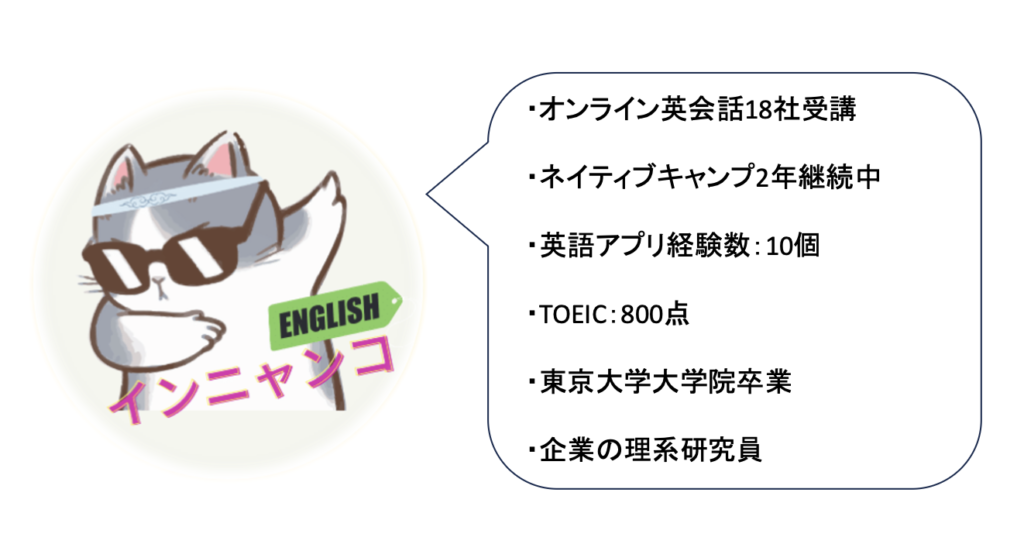
当ブログでは、日本で学べる英会話教室ついて紹介しています。
私の詳細なプロフィールについてはこちらになります。
“call at” と“call on“はともに「訪れる」という意味の英語フレーズですが、この2つのフレーズに違いはあるのでしょうか??
ということで今回は、“call at” と“call on“の違いについて解説していきます。
“call at” と”call on”の違い、各フレーズの使い方や例文を紹介していきますので、一緒に見ていきましょう。
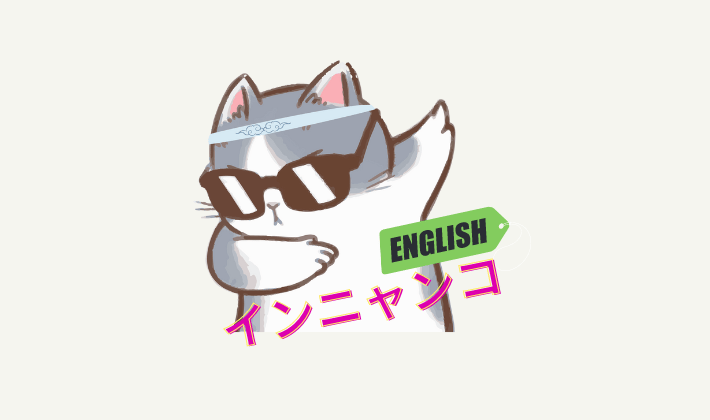 インニャンコ
インニャンコ英会話を上達させたいなら【スピーク】
![]()
![]()
なお、アプリを用いて英会話を上達させたいならば、【スピーク】
![]()
![]()
スピークはAI相手に英会話の練習ができるアプリで、2,000以上のレッスンや細かなフィードバックが魅力。私が試した中で最も優れていたアプリです。
今なら1ヶ月180円お試し使い放題のキャンペーンと7日間の無料体験を実施していますので、気になる方は試してみましょう。
\ 1ヶ月180円お試し使い放題のキャンペーン実施中 /
〜7日間無料体験も受講可能‼️〜
スピークについては以下の記事で詳しく紹介しています。




call at と call on の違い


英語の「call at」と「call on」はどちらも「訪問する」という意味を持つ表現ですが、使い方に違いがあります。
それぞれのニュアンスと使い方を解説します。



初心者にはスピークがおすすめニャ🎶
なお、初心者で英会話を学びたい方にはAI英会話アプリであるスピークがおすすめ。
スピークはAI相手なので緊張せずにレッスンが受けられますし、1つのフレーズを学ぶことを中心にレッスンが構成されているため着実にスピーキング力が上がります。
今なら7日間の無料体験を実施中ですので、気になる方は試してみると良いでしょう。
\ 1ヶ月180円お試し使い放題のキャンペーン実施中 /
〜7日間無料体験も受講可能‼️〜
スピークに関しては以下の記事をご覧ください。


1. Call at
- 意味: 「場所を訪れる」「立ち寄る」
- 使い方: 主に特定の場所を訪れる場合に使います。
- 例文:
- I will call at the post office on my way home.
(帰り道に郵便局に立ち寄ります。) - The ship called at several ports during its journey.
(その船は旅の途中でいくつかの港に寄港しました。)
- I will call at the post office on my way home.
2. Call on
- 意味: 「人を訪問する」「人に会いに行く」
- 使い方: 主に人を訪ねたり、公式な目的で人を訪れる場合に使います。また、「~に頼る」や「要求する」という意味で比喩的にも使われます。
- 例文:
- I will call on my grandmother this weekend.
(今週末に祖母を訪ねます。) - The teacher called on the student to answer the question.
(先生はその生徒に質問への回答を求めました。)
- I will call on my grandmother this weekend.
違いのポイント
- 訪問対象:
- Call at → 「場所」
- Call on → 「人」
- ニュアンス:
- Call at は具体的な場所への立ち寄りにフォーカス。
- Call on は人との交流や目的(頼る、要求する)にフォーカス。
まとめ
- Call at は場所、Call on は人を訪ねると覚えると簡単です。
- 例文やシチュエーションを意識すると、自然に使い分けられるようになります。
call for と call on の違い


英語の「call for」と「call on」はどちらも「呼ぶ」「求める」といった意味を持つことがありますが、ニュアンスや使い方には明確な違いがあります。それぞれの意味と使い方を詳しく解説します。
1. Call for
- 意味:
- 必要とする: 状況や条件が何かを必要とすること。
- 要求する: 声を上げて何かを求めること。
- 呼びに行く: 誰かを迎えに行くこと。
- 使い方: 主に行動や状況、何かを具体的に求めるときに使います。
- 例文:
- 必要とする:
- This job calls for patience and dedication.
(この仕事には忍耐と献身が必要です。)
- This job calls for patience and dedication.
- 要求する:
- The protesters called for immediate action.
(抗議者たちは即時の行動を要求しました。)
- The protesters called for immediate action.
- 呼びに行く:
- I will call for you at 7 PM.
(7時に迎えに行きます。)
- I will call for you at 7 PM.
- 必要とする:
2. Call on
- 意味:
- 訪問する: 誰かを訪ねること(特に公式な場面や目的のある訪問)。
- 頼る/要求する: 誰かに何かを頼むことや行動を促すこと。
- 発言を求める: 会議や授業で誰かに発言を促す。
- 使い方: 主に人との関わりがある場合や、特定の行動を求める場合に使います。
- 例文:
- 訪問する:
- We called on an old friend during our trip to London.
(ロンドン旅行中に昔の友人を訪ねました。)
- We called on an old friend during our trip to London.
- 頼る/要求する:
- I call on all citizens to help protect the environment.
(すべての市民に環境保護への協力を呼びかけます。)
- I call on all citizens to help protect the environment.
- 発言を求める:
- The teacher called on him to answer the question.
(先生は彼に質問に答えるよう指名しました。)
- The teacher called on him to answer the question.
- 訪問する:
違いのポイント
- 主な対象:
- Call for: 状況や事象、具体的な行動を求める。
- Call on: 人を訪ねたり、人に対して行動を求める。
- ニュアンス:
- Call for は一般的に状況や抽象的な対象(行動、物事)に関連する。
- Call on は人を対象とし、訪問や頼ることが主な目的。
まとめ
- Call for → 状況や条件が「必要とする」「要求する」。
例: This project calls for careful planning. - Call on → 人を「訪問する」「頼る」「行動を求める」。
例: We called on our neighbor to help us.
覚え方のヒント:
- 「For」は何か(目的・理由)に向かうイメージ。
- 「On」は相手に焦点を当てるイメージ。
call on と visit の違い


「call on」と「visit」はどちらも「訪問する」という意味がありますが、ニュアンスや使い方に違いがあります。それぞれの違いを詳しく解説します。
1. Call on
- 意味: 「(人)を訪問する」「(人)に会いに行く」
- 使い方:
- 公式な場面や目的がある訪問を指すことが多い。
- フォーマルな響きがあり、特定の理由がある場合によく使われる。
- 場合によっては「発言を求める」や「援助を求める」という比喩的な意味でも使われる。
- 例文:
- The doctor called on the patient to check their progress.
(医師は患者の様子を確認するために訪問しました。) - We called on our professor to discuss the project.
(私たちはプロジェクトについて話し合うため教授を訪ねました。)
- The doctor called on the patient to check their progress.
2. Visit
- 意味: 「(場所や人)を訪れる」「訪問する」
- 使い方:
- より一般的で日常的な表現。人や場所、どちらにも使える。
- フォーマルからカジュアルな文脈まで幅広く使われる。
- 目的がなくても単に行く場合にも使える。
- 例文:
- I visited my friend yesterday.
(昨日友達を訪ねました。) - We plan to visit Paris next summer.
(来年の夏にパリを訪れる予定です。)
- I visited my friend yesterday.
違いのポイント
- フォーマリティ:
- Call on: フォーマルな響きが強く、特定の目的を持つ訪問。ビジネスや公的な場面で使われやすい。
- Visit: フォーマルでもカジュアルでも使える。日常会話に自然に溶け込む表現。
- 対象:
- Call on: 主に「人」に対して使う。
- Visit: 「人」だけでなく、「場所」にも使える。
- ニュアンス:
- Call on: 何らかの理由や目的を伴う訪問を暗示。
- Visit: 理由が明確でなくても単に「訪れる」という行動を指す。
比較例
- Call on:
- The mayor called on the hospital to inspect its facilities.
(市長は病院を訪れて施設を視察しました。)
→ 公的で特定の目的を持つ訪問。
- The mayor called on the hospital to inspect its facilities.
- Visit:
- I visited the hospital to see my friend.
(私は友達に会いに病院を訪れました。)
→ 個人的な理由で訪問。
- I visited the hospital to see my friend.
まとめ
- Call on はフォーマルで目的がある訪問に使う(特に人への訪問)。
- Visit は日常的でカジュアルな訪問や場所への訪問に使える。
call on 例文集


Formal Visit(公式な訪問)
| 例文 | 和訳 |
|---|---|
| The president called on the governor to discuss the budget. | 大統領は予算について話し合うため知事を訪問しました。 |
| The delegation called on the embassy to present their credentials. | 代表団は信任状を提出するため大使館を訪れました。 |
| The committee members called on the CEO to clarify their concerns. | 委員会メンバーは懸念事項を明確にするためCEOを訪れました。 |
Request for Action(行動の要求)
| 例文 | 和訳 |
|---|---|
| The speaker called on the audience to support the new initiative. | 講演者は聴衆に新しい取り組みを支援するよう呼びかけました。 |
| The organization called on citizens to volunteer for the event. | 団体は市民にイベントのボランティアをするよう呼びかけました。 |
| Activists called on the government to address climate change. | 活動家たちは政府に気候変動への対策を求めました。 |
Classroom Setting(授業の場面)
| 例文 | 和訳 |
|---|---|
| The teacher called on John to answer the question. | 先生はジョンに質問に答えるよう指名しました。 |
| The professor called on students to share their opinions. | 教授は学生に意見を共有するよう求めました。 |
| She called on her class to participate in the group discussion. | 彼女はクラスにグループディスカッションに参加するよう促しました。 |
Social Context(社会的な場面)
| 例文 | 和訳 |
|---|---|
| We called on an old friend during our vacation. | 私たちは休暇中に古い友人を訪ねました。 |
| She called on her neighbors to invite them to her party. | 彼女は隣人を訪れ、パーティーに招待しました。 |
| The pastor called on the community to come together for the festival. | 牧師は地域社会に祭りのために団結するよう呼びかけました。 |
Other Uses(その他の使用)
| 例文 | 和訳 |
|---|---|
| The judge called on the witness to give their testimony. | 裁判官は証人に証言をするよう求めました。 |
| The manager called on the staff to improve their productivity. | マネージャーはスタッフに生産性を向上させるよう求めました。 |
| The NGO called on the public to contribute to disaster relief. | NGOは市民に災害救援への寄付を求めました。 |
call onの使い方


“Call on” の使い方は、状況によって少し異なりますが、基本的には「人を訪問する」「何かを求める」「指名する」といった意味で使われます。
それぞれの使い方を具体的に解説します。
1. 人を訪問する(To visit someone formally)
- 意味: 「公式に人を訪問する」「フォーマルな場面で人を訪ねる」
- 特徴:
- 目的がはっきりしている訪問(例: ビジネス、公式の訪問)に使われます。
- 特定の用事や理由を含むニュアンスがあります。
- 例文:
- The president called on the prime minister to discuss the trade agreement.
(大統領は貿易協定について話し合うため首相を訪問しました。) - We called on an old mentor to seek advice.
(助言を求めて古いメンターを訪ねました。)
- The president called on the prime minister to discuss the trade agreement.
2. 何かを求める・呼びかける(To request or appeal to someone)
- 意味: 「何かを求める」「要求する」「呼びかける」
- 特徴:
- 誰かに具体的な行動や支援を求めるときに使われます。
- 公的な呼びかけや社会的な場面で頻繁に使用されます。
- 例文:
- Activists called on the government to take action on climate change.
(活動家たちは政府に気候変動への対応を求めました。) - The organization called on people to donate to the cause.
(団体は人々にその目的への寄付を呼びかけました。)
- Activists called on the government to take action on climate change.
3. 指名する・依頼する(To ask someone to speak or act)
- 意味: 「発言を求める」「指名する」「依頼する」
- 特徴:
- 教室や会議の場面で、特定の人に発言や回答を求める際に使います。
- 「あなたに頼む」というニュアンスが強い。
- 例文:
- The teacher called on Mary to answer the question.
(先生はメアリーに質問に答えるよう指名しました。) - The chairperson called on each member to share their thoughts.
(議長は各メンバーに意見を述べるよう求めました。)
- The teacher called on Mary to answer the question.
4. 比喩的な使い方(To rely on or invoke someone or something)
- 意味: 「~に頼る」「~を利用する」
- 特徴:
- 比喩的な表現として、「特定の人やスキルを頼る」という意味で使われます。
- 例文:
- The company called on its employees’ creativity to solve the problem.
(その会社は問題を解決するため従業員の創造性に頼りました。) - She called on her courage to face the challenge.
(彼女はその課題に立ち向かうため勇気を振り絞りました。)
- The company called on its employees’ creativity to solve the problem.
5. コロケーション(よく使われるフレーズ)
- Call on someone to do something: 誰かに何かをするよう求める。
- Example: They called on the citizens to stay calm during the emergency.
(非常事態の間、市民に冷静でいるよう求めました。)
- Example: They called on the citizens to stay calm during the emergency.
- Call on someone: 誰かを訪れる。
- Example: I will call on her this evening to discuss the matter.
(その件について話し合うため、今晩彼女を訪ねます。)
- Example: I will call on her this evening to discuss the matter.
“Call on” の覚え方
- フォーマルな訪問 → 特定の目的を持つ訪問(人に焦点)。
- 行動や支援を要求 → 「~してほしい」と呼びかける。
- 指名・依頼 → 教室や会議で人に発言や行動を求める。
- 比喩的な頼り → 人やスキル、性質に頼る。
ポイント: 「call on」はフォーマルな文脈や明確な目的がある場合に使われることが多いです。一方で、カジュアルな日常会話では「visit」や「ask」のほうが使われる場面が多いです。
call at の使い方


“Call at” の使い方は、主に「場所を訪れる」や「特定の地点に立ち寄る」という意味で使われます。
以下に具体的な使い方と注意点を解説します。
1. 場所を訪れる(To visit or stop at a place)
- 意味: 「特定の場所に立ち寄る」「一時的に訪れる」
- 特徴:
- 主に場所(建物、駅、港など)を訪れる場合に使います。
- フォーマルまたはやや古風な響きがあります。
- 「人」ではなく、「場所」が対象になります。
- 例文:
- The train will call at all major stations on its way to London.
(その電車はロンドンへ向かう途中、すべての主要駅に停車します。) - We will call at the bank before heading to the meeting.
(会議に向かう前に銀行に立ち寄ります。)
- The train will call at all major stations on its way to London.
2. 船や交通機関の寄港・停車(To stop at a port or station)
- 意味: 「(船や列車が)港や駅に停車・寄港する」
- 特徴:
- 船や列車など、移動手段が特定の場所に停車または寄港する際に使われます。
- より具体的な行き先を示す文脈で使用されます。
- 例文:
- The cruise ship will call at three ports during its journey.
(そのクルーズ船は旅の途中で3つの港に寄港します。) - Does this bus call at the city center?
(このバスは市内中心部に停車しますか?)
- The cruise ship will call at three ports during its journey.
3. コロケーション(よく使われるフレーズ)
- Call at a place: 特定の場所に立ち寄る。
- Example: I need to call at the pharmacy to pick up my medicine.
(薬を受け取るために薬局に立ち寄る必要があります。)
- Example: I need to call at the pharmacy to pick up my medicine.
- Call at a port/station: 港や駅に停車する。
- Example: The ferry called at several islands before reaching the mainland.
(フェリーは本土に到着する前にいくつかの島に寄港しました。)
- Example: The ferry called at several islands before reaching the mainland.
4. “Call at” と “Call on” の違い
| 特徴 | Call at | Call on |
|---|---|---|
| 対象 | 場所 | 人 |
| 使い方 | 「場所に立ち寄る」 | 「人を訪問する」「人に要求する」 |
| フォーマリティ | ややフォーマルまたは古風 | フォーマル(特に目的がある訪問) |
| 例文 | I will call at the post office. | I will call on my friend. |
5. 日常会話での使用頻度
- 「call at」は日常会話ではあまり使われず、特に交通機関やフォーマルな文脈で使われることが多いです。
- カジュアルな状況では「stop by」や「visit」という表現が一般的です。
- カジュアル: I’ll stop by the store.(店に寄るよ。)
- フォーマル: The train will call at the next station.(電車は次の駅に停車します。)
覚え方のポイント
- Call at = 「場所」(建物、駅、港など)に焦点。
- 例文で練習:
- The ship will call at the island tomorrow.
(その船は明日その島に寄港します。) - Can we call at the bakery on our way home?
(帰り道にパン屋に立ち寄れますか?)
- The ship will call at the island tomorrow.
他の「訪れる」という英語表現


| 英語表現 | 意味 | 例文 | 和訳 |
|---|---|---|---|
| Visit | 人や場所を訪れる(一般的) | I visited my grandparents last weekend. | 先週末に祖父母を訪ねました。 |
| Drop by | 立ち寄る(カジュアル) | Can you drop by my office later? | 後で私のオフィスに寄れますか? |
| Stop by | 立ち寄る(ややカジュアル) | I’ll stop by the store on my way home. | 帰り道に店に寄ります。 |
| Come over | 家や近くに来る | Why don’t you come over for dinner tonight? | 今夜夕食を食べに来ませんか? |
| Pay a visit to | 人や場所を訪れる(フォーマル) | She paid a visit to the museum yesterday. | 彼女は昨日博物館を訪れました。 |
| Look in on | 状況を確認するために訪れる | I’ll look in on my neighbor to see if she’s okay. | 隣人が大丈夫か確認するために寄ります。 |
| Call on | 人を訪問する(フォーマル) | We called on our professor to ask for advice. | 助言を求めるため教授を訪ねました。 |
| Pop in | 短時間立ち寄る(カジュアル) | I just popped in to say hi. | ちょっと挨拶しに寄りました。 |
| Go see | 人を訪れる(カジュアル) | I’m going to see my friend this weekend. | 今週末に友達に会いに行きます。 |
| Make a trip to | 計画的に訪問する | We’re making a trip to the countryside tomorrow. | 明日田舎に旅行します。 |
以下に、「訪れる」を表す英語表現10個について詳しく解説します。それぞれのニュアンスや使い方、例文を含めて説明します。
1. Visit
- 意味: 最も一般的な「訪れる」の表現で、人や場所、どちらにも使える。
- ニュアンス: フォーマルでもカジュアルでも使える万能な表現。
- 例文:
- I visited my parents last weekend.
(先週末に両親を訪ねました。)
- I visited my parents last weekend.
2. Drop by
- 意味: 短時間立ち寄る、カジュアルな訪問。
- ニュアンス: 予告なしで気軽に寄るイメージが強い。
- 例文:
- Can you drop by my office later?
(後で私のオフィスに寄れますか?)
- Can you drop by my office later?
3. Stop by
- 意味: 短時間立ち寄る、ややカジュアル。
- ニュアンス: Drop by と似ているが、少しだけフォーマルな場面でも使える。
- 例文:
- I’ll stop by the store on my way home.
(帰り道に店に寄ります。)
- I’ll stop by the store on my way home.
4. Come over
- 意味: 家や近くの場所に訪れる。
- ニュアンス: 招待を伴うことが多い。親しい人との間でよく使う。
- 例文:
- Why don’t you come over for dinner tonight?
(今夜夕食を食べに来ませんか?)
- Why don’t you come over for dinner tonight?
5. Pay a visit to
- 意味: フォーマルな表現で、誰かやどこかを訪れる。
- ニュアンス: 礼儀正しい響きがあり、計画的な訪問を暗示する。
- 例文:
- She paid a visit to the museum yesterday.
(彼女は昨日博物館を訪れました。)
- She paid a visit to the museum yesterday.
6. Look in on
- 意味: 誰かの様子を確認するために訪れる。
- ニュアンス: お世話や見守りの意味を含むことが多い。
- 例文:
- I’ll look in on my neighbor to see if she’s okay.
(隣人が大丈夫か確認するために寄ります。)
- I’ll look in on my neighbor to see if she’s okay.
7. Call on
- 意味: 人を訪問する(フォーマルな場面)。
- ニュアンス: 特定の目的を持った訪問(例: 助言を求める、公式の訪問)を暗示する。
- 例文:
- We called on our professor to ask for advice.
(助言を求めるため教授を訪ねました。)
- We called on our professor to ask for advice.
8. Pop in
- 意味: 短時間立ち寄る(カジュアル)。
- ニュアンス: Drop by と似ているが、さらに軽い響きがあり、日常会話でよく使われる。
- 例文:
- I just popped in to say hi.
(ちょっと挨拶しに寄りました。)
- I just popped in to say hi.
9. Go see
- 意味: 人を訪れる(カジュアル)。
- ニュアンス: 「~に会いに行く」という直接的な表現。話し言葉でよく使う。
- 例文:
- I’m going to see my friend this weekend.
(今週末に友達に会いに行きます。)
- I’m going to see my friend this weekend.
10. Make a trip to
- 意味: 計画的にどこかを訪れる。
- ニュアンス: 旅行や遠方の訪問を暗示することが多い。
- 例文:
- We’re making a trip to the countryside tomorrow.
(明日田舎に旅行します。)
- We’re making a trip to the countryside tomorrow.
まとめ
これらの表現は、場面や目的によって使い分けが必要です。例えば、フォーマルな訪問では call on や pay a visit to が適し、カジュアルな立ち寄りには drop by や pop in がよく使われます。
「訪れる」対象が人か場所かによっても適切な表現が変わるので、文脈に注意して使うと自然になります。
なお、自己紹介に役立つフレーズも学びたい方はKredo Blogの「英語での簡単自己紹介10フレーズ 初対面の外国人と一瞬で仲良くなれる!」をご覧ください。
call on の返し方


以下にシンプルな表で、「call on」に対する返答をシチュエーション別に30個まとめました。
1. Formal Visit(公式な訪問)
| 例文 | 和訳 |
|---|---|
| Thank you for calling on me. I’m happy to discuss this matter. | お越しいただきありがとうございます。この件についてお話しできて嬉しいです。 |
| I appreciate your visit. Let’s get started on the agenda. | 訪問していただきありがとうございます。議題に取り掛かりましょう。 |
| It’s an honor to have you here. Please take a seat. | お越しいただき光栄です。どうぞお座りください。 |
2. Request for Action(行動の要求)
| 例文 | 和訳 |
|---|---|
| Thank you for bringing this up. We’ll take it into consideration. | この件をご提案いただきありがとうございます。検討させていただきます。 |
| We hear your concerns and will act on them promptly. | 懸念事項を伺いました。すぐに対応いたします。 |
| Your request is noted, and we will address it as soon as possible. | ご要望は承知しました。できるだけ早く対応いたします。 |
3. Classroom Setting(授業の場面)
| 例文 | 和訳 |
|---|---|
| I think the answer is 42. Am I correct? | 答えは42だと思います。正しいでしょうか? |
| Yes, professor, I would like to share my opinion on this topic. | はい、教授。このテーマについて意見を述べたいと思います。 |
| I’m not sure, but I’ll try to answer the question. | 確信はありませんが、質問に答えてみます。 |
4. Social Context(社会的な場面)
| 例文 | 和訳 |
|---|---|
| It’s so good to see you! Come in and make yourself comfortable. | お会いできて嬉しいです!中に入ってゆっくりしてください。 |
| Thank you for visiting. How have you been? | 訪ねてくれてありがとう。元気にしていましたか? |
| I’m glad you stopped by. Let me get you something to drink. | 立ち寄ってくれて嬉しいです。何か飲み物を用意しますね。 |
5. Other Responses(その他の返答)
| 例文 | 和訳 |
|---|---|
| Thank you for your appeal. We will work to support your cause. | ご提案ありがとうございます。取り組みを支援させていただきます。 |
| Your concerns are valid, and we’ll work together to resolve them. | 懸念はもっともです。一緒に解決していきましょう。 |
| I appreciate your visit and look forward to discussing the proposal. | ご訪問ありがとうございます。提案について話し合うのを楽しみにしています。 |
尚、get rid of については以下の記事をご覧ください。
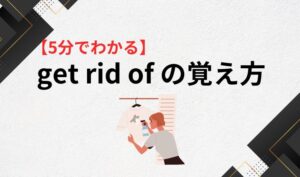

英語を話せるようになりたいなら
英会話を勉強する場合、英会話教室、英語コーチング、英語アプリ、参考書、Youtubeなど、沢山の勉強方法がありますよね。
そんな中、私がおすすめしているのが「オンライン英会話」。
特に、ネイティブキャンプ
![]()
![]()
ネイティブキャンプは、レッスン受け放題という他社にはないサービスを7,480円/月という価格で提供しているため、コスパが最も良い英会話になります。
講師、教材も充実しているおり、ネイティブキャンプは私の最もおすすめするオンライン英会話となります。
今なら、7日間のレッスン受け放題を無料で体験することができますので、気になる方は無料体験レッスンを受けてみてはいかがでしょうか?
\ 1週間レッスン受け放題の無料体験実施中 /
〜随時開催中〜
まとめ
さて、本記事をまとめますと・・・
| 項目 | Call at | Call on |
|---|---|---|
| 対象 | 「場所」 | 「人」 |
| 意味 | 場所を訪れる、立ち寄る | 人を訪問する、何かを要求する |
| フォーマリティ | ややフォーマルまたは公式 | フォーマルで特定の目的を持つ訪問 |
| 使用例 | I will call at the post office. | I will call on my friend this evening. |
| 特定の用途 | 駅・港・建物などへの一時的な立ち寄り | 助言、要求、公式な目的での訪問 |
| よく使われる場面 | 交通機関(電車・船)、日常の立ち寄り | ビジネスや公的な場面、人との交流 |
最後までご覧頂き有難うございました。
なお、外国人の英語に対応するには、実際に英語で会話する練習をするのが最適です。
オンライン英会話は、コストをかけずに外国人と会話する練習をすることができるため、手軽に勉強したい方におすすめになります。
以下の記事では私が今まで経験してきたおすすめのオンライン英会話についてまとめています。
実体験を中心に紹介していますので、どのオンライン英会話にすべきか悩まれている方はこちらの記事もぜひご覧になってみてください。


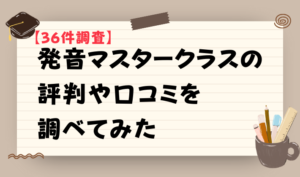
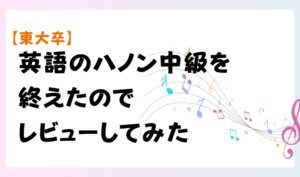






コメント
コメント一覧 (1件)
[…] あわせて読みたい 【5分でわかる】call at と call on の違いとは この記事解決できるお悩み ・call at と call on の違いを教えて ・call at の使い方が知りたい ・call on の使い方は? ・本記 […]